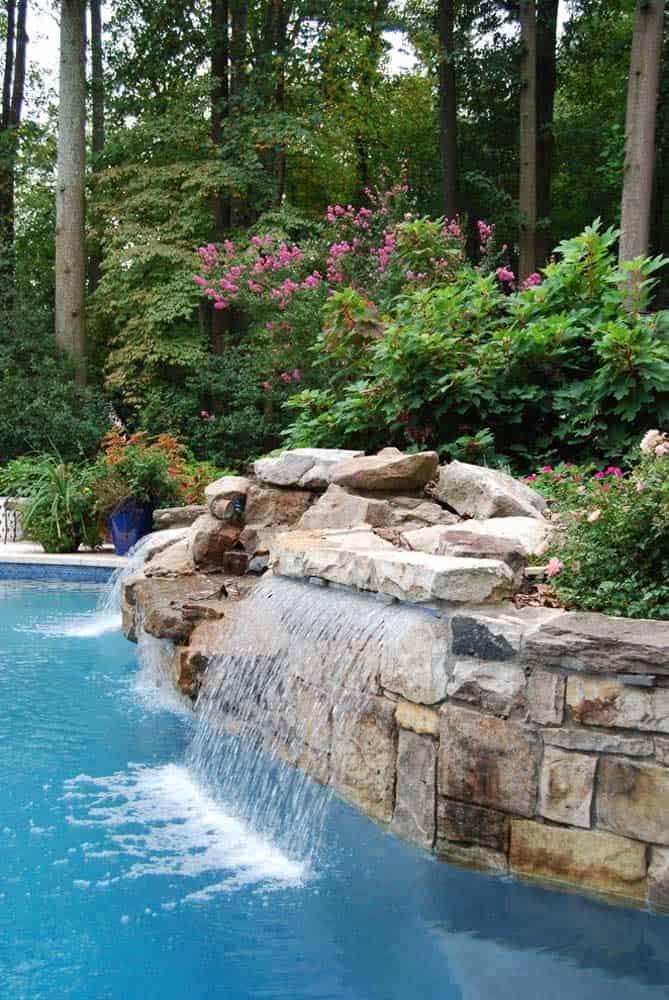The tiles and chlorine come out, plants, stones, and fish enter. Yes, we are talking about the natural pool. This type of pool emerged in Europe about 20 years ago and is increasingly present in residential projects around the world, including Brazil.
And in today’s post you’ll find out the reason for all this frisson and who knows, you’ll also get plenty of reasons to want one of these too. Come and see!
A natural pool values intimate contact with nature. It does this by reproducing aquatic ecosystems very similarly, where everything works within a harmonious and functional cycle, including fish, rocks, and plants.
One of the main advantages of the natural swimming pool is the absence of chlorine and other chemicals that are harmful to human health and nature.
The natural pool’s self-cleaning system and biological filters eliminate the need for this type of product, making the water purer and, consequently, doing good for the skin, hair, and the surrounding nature.
The purpose of the natural pool is precisely to promote greater contact with nature. And everyone knows that this proximity is very beneficial to humans, being able to reduce levels of stress, anxiety and even help in cases of depression.
The natural pool, as it should be, is sustainable and ecological. First, because it requires no chemical maintenance. Second, the natural pool balances ecosystems with minimal human intervention.
In addition, the plants present in the pool directly collaborate with the life of other species, such as birds and insects, not to mention that they also contribute to the improvement of air quality and the microclimate in the region.
Of course, the natural pool will also have a positive impact on your pocket. This is because this type of pool considerably reduces the need for maintenance. With a well-thought-out and executed design, your only job will be to clean the pump filter. Significant savings on chemicals and labor.
Some indispensable elements are needed to be involved in the process of making a natural pool. Let’s start with plants, stones, fish, and sand.


Each one of them has its own function so for example you’ll need plants as they are that main element of the natural pool, as they do the water filtering work.
Stones are important from both an aesthetic and a functional point of view. The most common is the use of natural rocks and gravel.
Fish are not mandatory, but they add more charm to the natural pool, in addition to helping to clean the water. The most suitable species for swimming pools are carp of the Nishikigois genus.
The sand is used to cover the bottom of the pool and bring an even greater feeling of a natural environment. Beach sand is the most suitable.
The rubber blanket is used to cover and protect the bottom of the pool. Indispensable.
Another important factor is the depth of the pool. For everything to work as expected it is necessary to excavate at least 1.50 meters deep.
Pump and filter are important to help the natural pool function properly. However, each project will require a different type of equipment depending on the size of the pool.
Organic forms
Forget the straight lines of traditional pools. Natural pools ask for organic, fluid, and rounded shapes.
Plants and stones
You already know the importance of plants and stones for the proper functioning of the pool, but it is worth remembering that these elements are also part of the design. Therefore, a good landscaping project is also essential.
Lighting
To further enhance the natural pool, don’t do without the use of good lighting. Use LED strips, sunlight poles, and floor spots.
Check out 9 natural pool projects for you to fall in love with:
1.
2.
3.
4.
5.
6.
7.
8.
9.
This website uses cookies.